[Updated Oct 2020] A guide to serviced offices and office space for rent in Singapore as well as general information that may be useful if you are considering renting office space in the city.
For further Singapore office space information or to search office space for rent in Singapore just click. Or contact us for any other office space query.
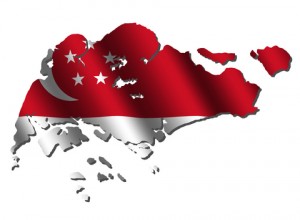
The Lion City
Singapore literally translates as the ‘Lion City’, having been named after what one of the island’s first developers, the local emperor Sang Nila Utama, believed he’d seen in the trees after his ship-wrecked arrival there back in 1324. Experts now believe that he probably saw a Malayan tiger and not a lion after all but the name, from the Sanskrit ‘Singa’ meaning lion and ‘Pura’ meaning city, has stayed with the island ever since.
Substantial settlements were being established on the island, which lies off the southern tip of the Malay Peninsula, up until the early 17th century when a Portuguese fleet arrived and burnt its primary port town to the ground. Recovery took several centuries and was eventually spurred by the intervention of the British navy, which was keen to take advantage of what it saw as a strategically important port.
Raffles and Co
The chief protagonist of Singapore’s rise to being a centrally important site in the imperial battle for dominance in South-east Asia during the 19th century was Thomas Stamford Raffles, a British statesman now widely credited with having founded the modern-day city of Singapore. Raffles’ main reason for being in the region was to strengthen the British trading position and surpass that of both the French and Dutch, particularly with regards to the island of Java, one of the most sought-after territories in the world at that time.
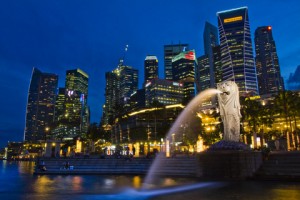
Singapore officially became a British colony in 1826 and was to remain as such for over a hundred years. Within fifty years of Raffles landing on the island, its population had risen to more than 100,000 and the city itself was fast becoming one of the most prominent ports in Asia.
Independence
The British were eventually obliged to let Singapore govern itself and the island nation was to briefly join with its neighbours under the banner of the Federation of Malaysia, but the union was to be an unhappy and unproductive one, at least as far as Singapore was concerned. Full independence and the establishment of the island as its own nation-state came in 1965, since which time the bulk of domestic political power has been held by the prime minister in office in the lion city.
Although fully independent, Singapore retains much of the legal and organisational structure left behind by the British. It operates as a parliamentary republic in the style of London’s Westminster, with different constituencies and representative democracy. In recent decades, the island has taken advantage of its geographical position close to the giant markets of Indonesia, Malaysia, Japan and China, while also introducing some innovative and largely effective economic reforms.
Economy
Singapore is generally regarded as having one of the most dynamic economies in Asia and with good reason. Despite suffering a contraction in its GDP in 2009, it rebounded remarkably well in 2010, managing to achieve an economic growth rate in the high teens over the course of last year. Such impressive numbers gave it the title of the fastest-growing economy on earth over the course of 2010, outpacing even the likes of near-by India, China and Taiwan.
The strength and resilience of the Singaporean economy are built partly on the solid foundations of an excellent education system, which has given it a highly-skilled workforce and an enviably well-matched knowledge-based economy. In addition, its port is among the busiest and most productive in the world, which has enabled it to thrive on an ‘entrepot’ economy, whereby raw materials can be freely imported and then expertly refined or manufactured in various ways ready for re-export.
As well as these fundamental advantages, Singapore has established itself as one of the world’s key financial centres and has benefited from having a well-earned reputation as probably the least corrupt nation in Asia. Hundreds of the largest multi-national corporations have a considerable presence in Singapore and the city has been rated as being one of the world’s leading logistics hubs.
Office space to rent in Singapore
As you might expect from the country handed the label of having the world’s fastest-growing economy, office space to rent in Singapore has seen considerable growth in demand in recent months. Like most other nations in the world, the new development on the island was restricted in the aftermath of the economic crises of 2008 but, as in much of Asia, Singapore’s office space market has recovered more quickly than its European and North American counterparts.

Indeed, demand for office space to rent in Singapore increased notably in 2010 and the trend continued throughout 2011 and 2012. With this in mind, it is perhaps not surprising that CB Richard Ellis saw almost two-thirds of all global office space development take place in the Asia-Pacific region between 2010 and 2012, with Singapore playing a major part in that trend.
The same commercial property analyst firm reported recently that “pent-up demand from multinational companies” is driving-up rental costs associated with Singapore’s office space.
Tourism and culture
As with seemingly every other aspect of the Singaporean economy, the tourist industry has been meticulously encouraged in a variety of ways by the country’s government. The results have been impressive, with upwards of ten million people now visiting the island on an annual basis and tourism becoming yet another thriving sector of the national economy. Part of the plan to boost visitor numbers in the main city was as simple and as breathtaking as lighting up virtually the entirety of the downtown region in quite spectacular fashion.
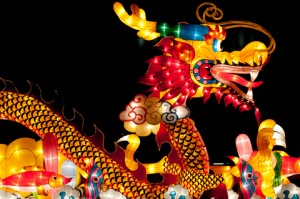
There are now also a number of well-attended festivals that take place every year to celebrate Singaporean food, music and the culture as a whole, which has always been based on a blend of influences from across Asia and the world. Singapore is arguably the most cosmopolitan place on earth, which of course makes it a very exciting and interesting place to visit.
Transport
Simply because of its geographical location, at the foot of the Malay Peninsula, Singapore has long been a central transport hub for all of South-east Asia. In recent decades it has increasingly accommodated trade and visitors via its airports, as well as by sea via its more traditional port, which remains immensely well-used. It is now one of the main stopping points for people flying to or from virtually any other part of Asia or the world.
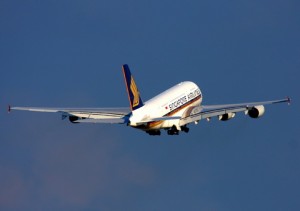
The Singapore Changi Airport has flights heading to and from 200 different cities, and both the airport and its principal carrier Singapore Airlines are rated as being among the very best in the world. On a domestic basis, the local transport links are comprised primarily of bus routes and light train networks, all of which run smoothly and are steadily being improved in various ways.
Sport
For all its impressive achievements in a huge array of domains, Singapore has not been particularly famed for its sporting endeavours over the years, although there are plenty of opportunities for the island’s residents to enjoy their favourite games. Generally, this means plenty of playing football, basketball, badminton and cricket, as well as a fair bit of swimming, sailing and scuba diving when the weather allows.
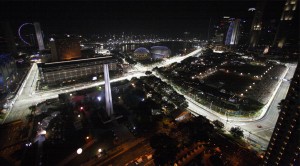
Probably the most high-profile sporting contest to take place in Singapore is the annual round of the Formula One World Championship, which started in 2008 and is already one of the stand-out events on the motorsport calendar.
We carry out a free office space search and our advisory and acquisition services are also free, always. Our Singapore office space brokers and agents are globally regulated by the Royal Institution of Chartered Surveyors (RICS) ensuring the highest standards of commercial property advice and service at all times. We look forward to helping you find the best office space for rent for your business.

The Office Providers are Regulated by the Royal Institution of Chartered Surveyors (RICS)